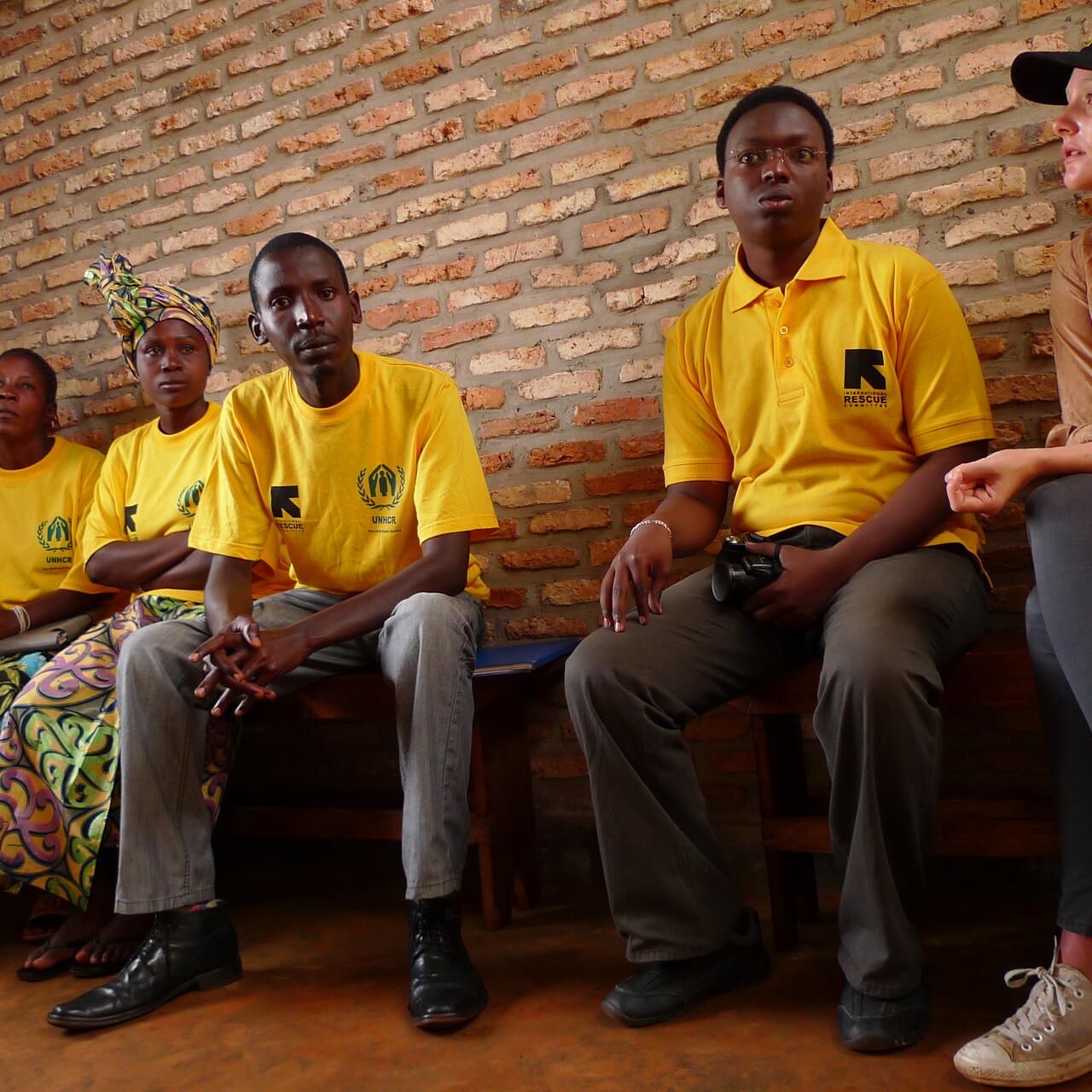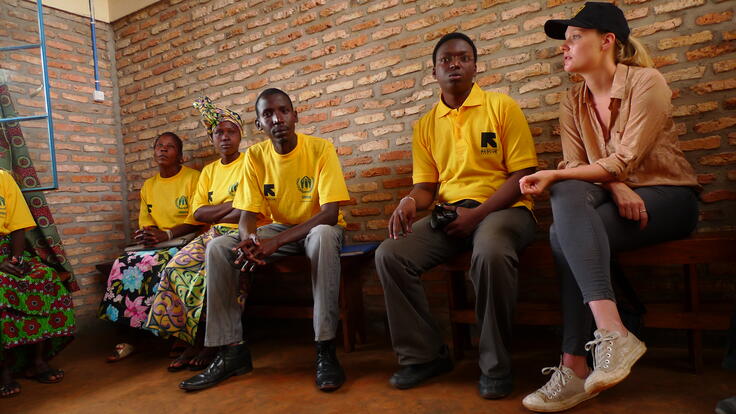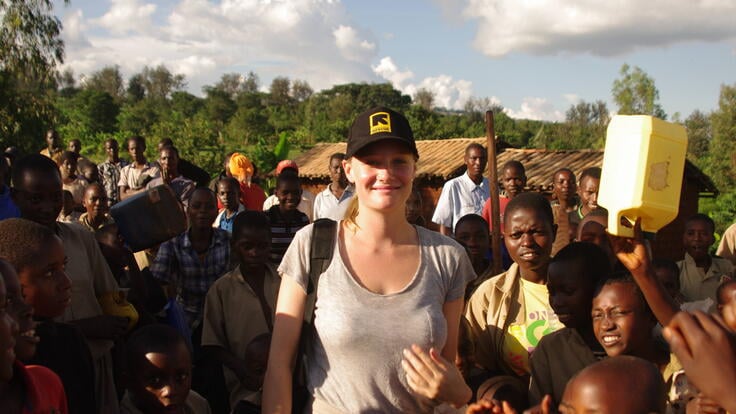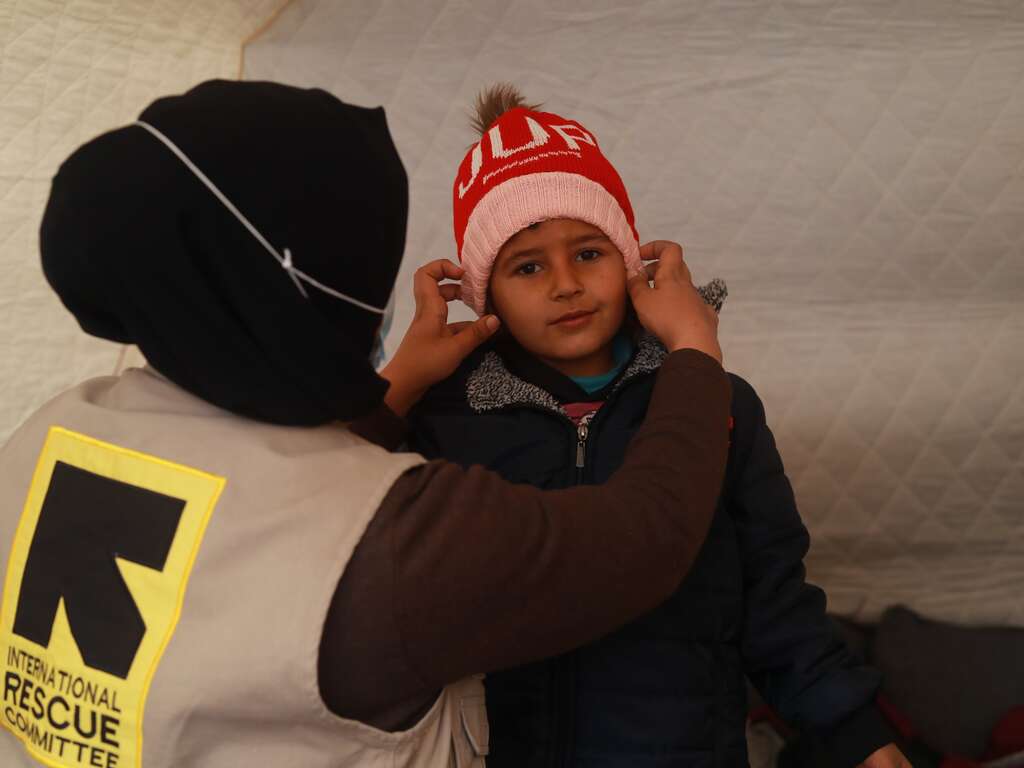
Sometimes, a trip can change your life, as the visit I made to Burundi with the International Rescue Committee did.
One of the most populous countries in the world, with an average family size of seven, for 15 years Burundi was crippled by a bitter and violent civil war. As is always the case, it was worst for the women and children. The war fostered a culture of rape and domestic violence. Although women here can vote, they can’t own land and, in a country where land is everything, that means financial disaster. But the good news it that Burundi is at peace, and the work of building a future can really begin.
Four hours after landing in the capital Bujumbura, I was trekking through the muddy cassava plantations (in inappropriate, leaky Converse) to discover a small mud hut amidst the crops. Inside was a group of 20 women, attending a meeting of their Village Savings and Loans Association (VSLA). These women receive tiny loans of between $15 and $50, which they can use to build their businesses. The scheme doesn’t just supply money, but also business development training. The sight of 20 women in a tiny shack laughing and fist-bumping, as they competed in an exercise to see who could save the most, was truly inspiring. When I thought of the mess I make of my own finances, and how hard I find it to save even in a climate of luxury, I thought I could do with some help from the IRC workshops myself.
Other programmes include ‘Healing families. At the end of a long dirt track on a hill overlooking Lake Tanganyika sits a large community hall. Here I watched as about 50 men and women sat in a large circle and explored ways of communicating without violence and enabling couples to build companionship and trust. Again, I felt Burundi is learning lessons that we have yet to master back home.
The most important thing I learnt in Burundi was how vital it is to empower people to help themselves. Gone are the days where we, the developed world, can swoop into countries, spend money on short-term ‘emergency relief' and believe that is enough. Long-term solutions are the real answer.
Tamah Murfet, who runs the IRC’s Women Protection and Empowerment programmes in Burundi, told me ‘the impact of some of the best work we do here can never be measured’. It isn’t just how many are fed and how many go to school; but it’s the long, slow work of changing a society and ensuring a peaceful future for Burundi. The IRC is supporting a major initiative that trains volunteers to go out and talk about domestic violence, and ‘social assistants’ who walk the survivor through every step of the healthcare and legal support available to them. But, if the community activism does its job, then Burundi can create a climate where violence against women can be stamped out. For good.
This article appeared in the February edition of RED magazine.
Find out more about our women protection and empowerment work.


